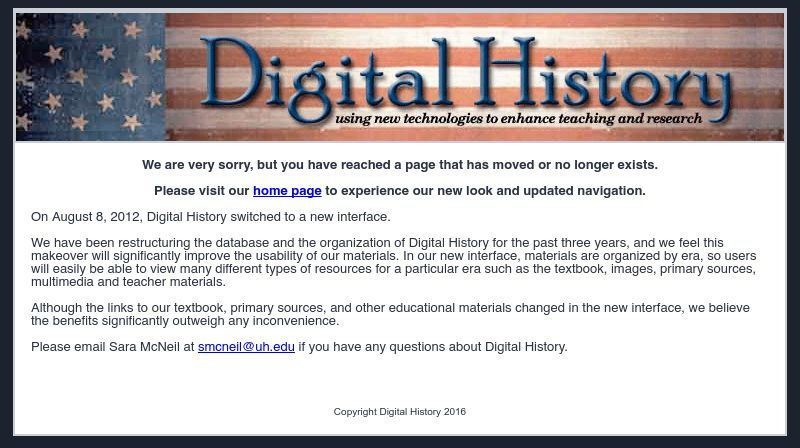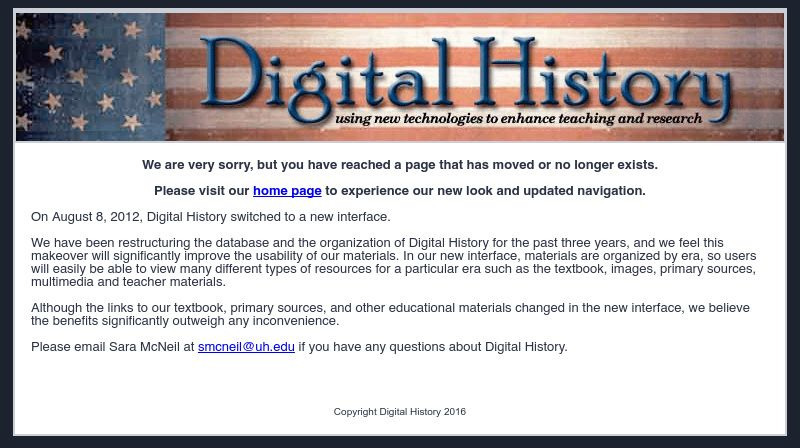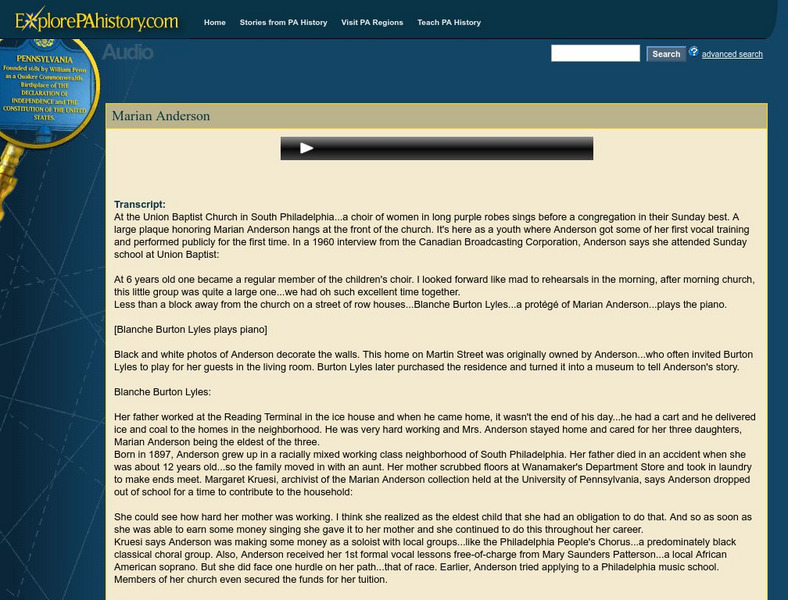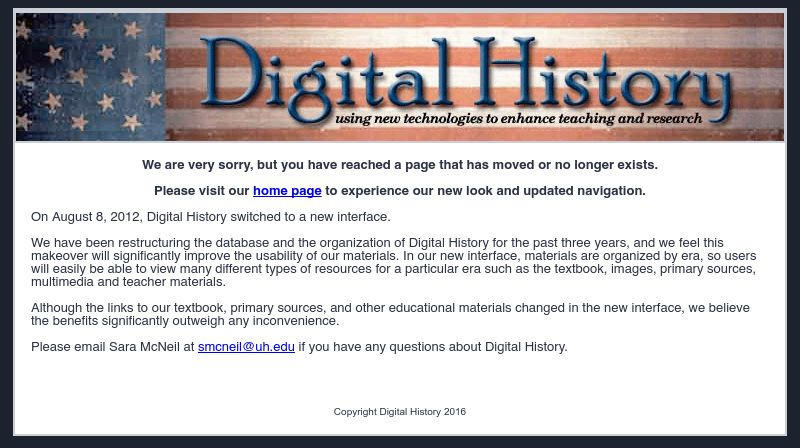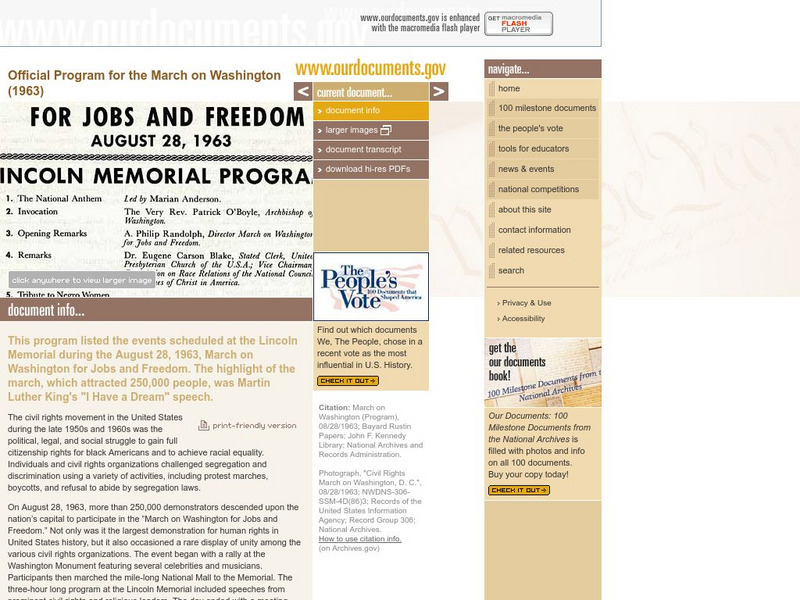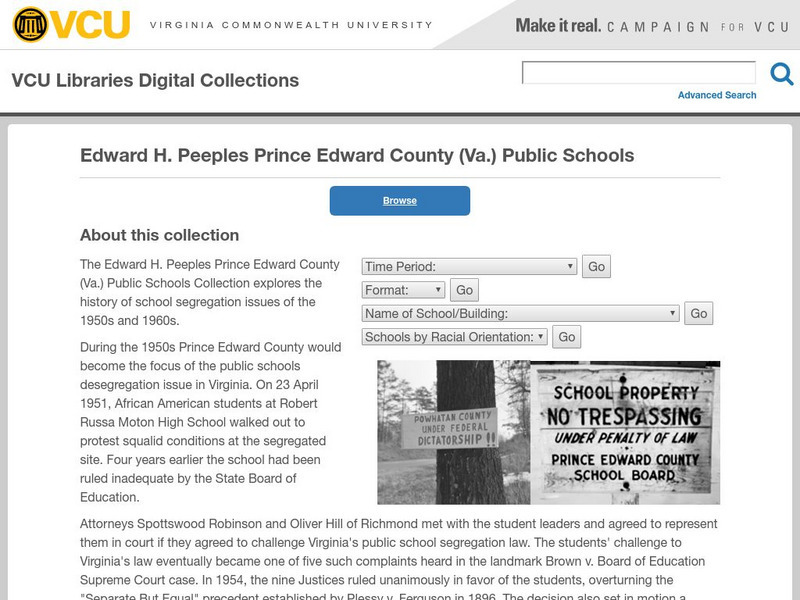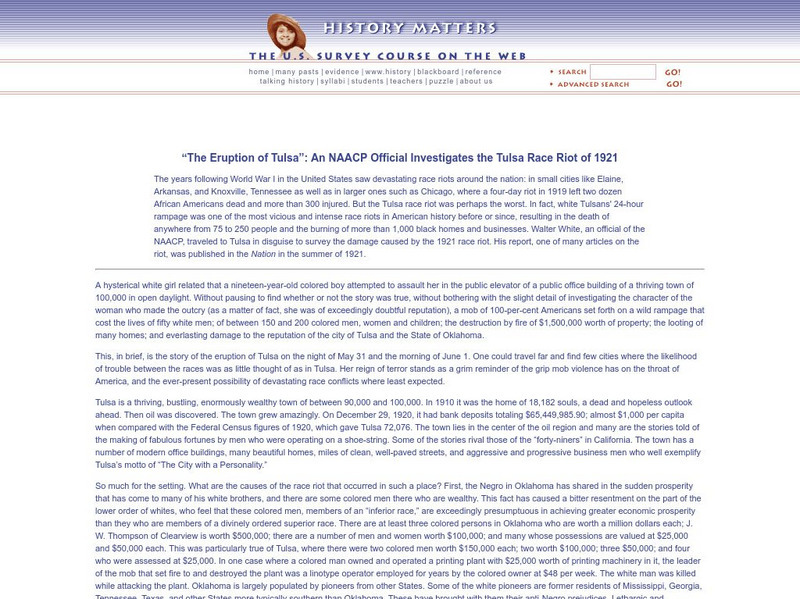Hi, what do you want to do?
Curated OER
History Matters: Walter White Considers the Causes of the 1919 Chicago Race Riot
An article by NAACP executive secretary, Walter White, discusses the eight reasons he saw for the Chicago Race Riots in July, 1919. He goes into great detail to support these causes.
Digital History
Digital History: Segregation in the North; Case Study: Boston 7 [Pdf]
Read about the law suit against Boston Public Schools claiming that the schools were segregated in fact, although not by law. See the results of busing and read the addendum about the status of integration in Boston at this time. The...
Black Past
Black Past: Wilkins, Roy
This encyclopedia entry recounts briefly the life of Roy Wilkins, a very influential civil rights leader.
PBS
Wnet: Thirteen: The Rise and Fall of Jim Crow
Companion to a four-part PBS series about Jim Crow has a timeline with links to significant events and people, video and audio clips from the series, and in-depth backgrounders on Jim Crow issues and impacts.
Other
Naacp History: Medgar Evers
A good biography of civil rights activist Medgar Evers, who was murdered for his attempts to integrate institutions in Jackson, Mississippi.
Other
Naacp History: Anti Lynching Bill
After a brief summary of the background of anti-lynching legislation, read the text of the 1922 Anti-Lynching Bill. Although passed by the House of Repesentatives, it was filibustered by the Senate.
Library of Congress
Loc: Inaugural Pilgrim Finds Her History
87 year old civil rights activist, Isaac Lowe, came from her small California town to Washington, D.C. to witness the inauguration of the President Barack Obama in 2009. Her story is featured in this article.
US House of Representatives
History, Art, and Archives: The Civil Rights Act of 1957
Read about the role of President Eisenhower in the impetus for the support of civil rights in 1957.
Khan Academy
Khan Academy: Brown v. Board of Education of Topeka
Discusses the famous Supreme Court decision that ended school segregation, Brown v. Board of Education of Topeka (1954).
Siteseen
Siteseen: American Historama: Naacp Facts & History Timeline
Presents details of important people and interesting historical events relating to the NAACP in a timeline format.
Digital History
Digital History: Simple Justice
Follow the civil rights quest for integrated schools from the beginning in 1849 through the 1954 Supreme Court decision in Brown v. the Topeka Board of Education and the struggle that ensued for decades following in the most reluctant...
Digital History
Digital History: Thurgood Marshall
Thurgood Marshall was one of the most important figures in the civil rights movement. In this biographical account, follow the steps of Marshall from his days as a law student at Howard Law School, to his victories as chief counsel for...
Digital History
Digital History: Two Paths Towards Equality [Pdf]
During the time of rising segregation in the late 19th century two African-American leaders offered two opposite views about how to advance civil rights for African-Americans. Read about the philosophies of those leaders. Booker T....
National Women’s History Museum
National Women's History Museum: The Sit in Movement
Being served at a lunch counter was normal for whites, but African Americans were not allowed to sit at lunch counters throughout the South. Learn details of the Greensboro Sit-In.
Scholastic
Scholastic: Culture & Change, Evolution of Black History
Explore the Black History in America in the lives of famous African Americans. Features include a clickable interactive timeline that highlights important events, accomplishments, and personalities from 1492 to 2001.
Pennsylvania Historical and Museum Comission
Explore Pa History: Marian Anderson
Examine the historical contributions of world renown opera singer and Pennsylvania native, Marian Anderson in this concise biography.
Independence Hall Association
U.s. History: w.e.b. Du Bois
Read a brief biography of W.E.B. DuBois, who was an early civil rights activist and supporter of equal opportunity and treatment for African-Americans. See how he acted on his beliefs. Included is a brief quiz about the Progressive Era.
Digital History
Digital History: Birmingham, Alabama: Bombingham
The city that best exemplifies white resistance to integration and the tension and conflict of the civil rights movement is Birmingham, Alabama. Learn about events of and reactions to the civil rights movement of the early 1960s in...
Black Past
Black Past: Walters, Bishop Alexander
In this encyclopedia entry, you can read about Bishop Walters, a minister and one of the founders of NAACP.
Black Past
Black Past: King, Jr., Martin Luther
This encyclopedia article gives a good overview of Rev. Martin Luther King, Jr.'s life and his place in the history of civil rights in the U.S. There is a link to a website that gives more information.
Yale University
Yale New Haven Teachers Institute: The Negro Holocaust, 1880 1950
This resource provides information on the lynching of African Americans, what it was, why it happened and how frequently it happened. It also outlines race riots in the first part of the 20th century as well as discussion on the black...
US National Archives
Our Documents: Official Program for March on Washington(1963)
Contains a copy of the original program for the March on Washington that featured Martin Luther King. Provides a summary of the civil rights movement at that time.
Virginia Commonwealth University
Virginia Commonwealth University: Separate but Not Equal
Telling pictures of elementary schools for Blacks and Whites during the 50s and 60s. Discusses the situation in Prince Edward County that led to the Davis v. County School Board of Prince Edward County court case.
Curated OER
History Matters: The Eruption of Tulsa
This article in the June 29, 1921, issue of Nation magazine by Walter White, an NAACP official, reports on the massive damage to black-owned homes and businesses as a result of the Tulsa race riot on May 31, 1921.






![Digital History: Segregation in the North; Case Study: Boston 7 [Pdf] Website Digital History: Segregation in the North; Case Study: Boston 7 [Pdf] Website](https://static.lp.lexp.cloud/images/attachment_defaults/resource/large/FPO-knovation.png)






